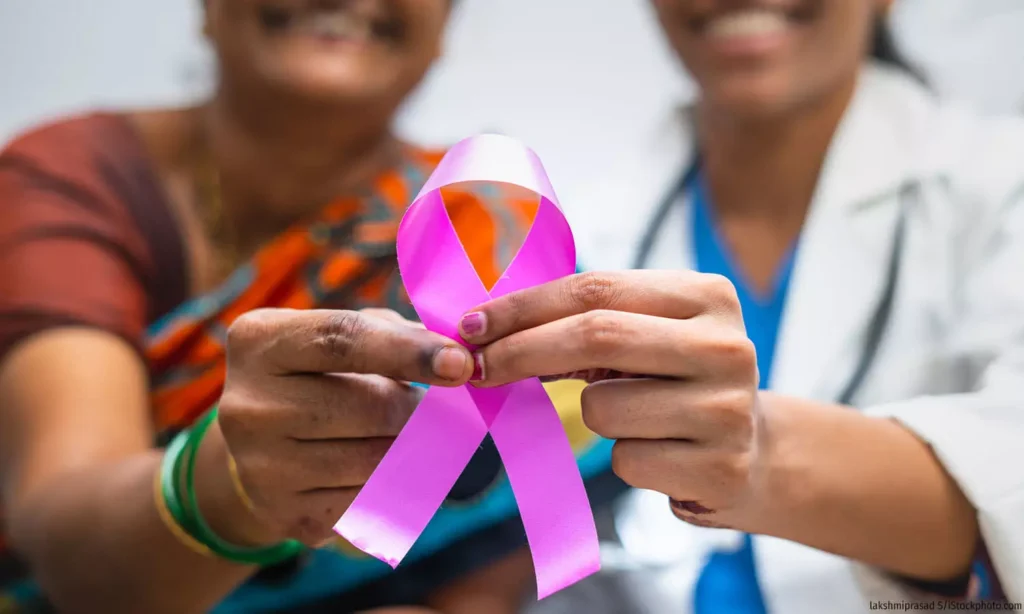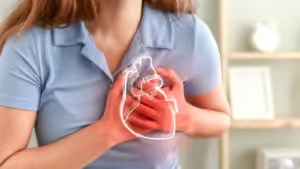Introduction
Cancer is a disease characterized by the uncontrolled growth of abnormal cells in the body. Detecting cancer early can significantly improve treatment outcomes and survival rates. This comprehensive guide will provide you with detailed information on how to know if you have cancer, covering common signs and symptoms, diagnostic methods, and the importance of regular screenings and medical consultations.
Understanding Cancer
Cancer can develop in virtually any part of the body and can spread to other parts through the bloodstream and lymphatic system. There are over 100 different types of cancer, each with its own set of symptoms and diagnostic procedures. The most common cancers include breast cancer, lung cancer, prostate cancer, colorectal cancer, and skin cancer.
Common Signs and Symptoms of Cancer
While many cancers have no symptoms in the early stages, there are some general signs and symptoms that could indicate the presence of cancer. If you experience any of the following symptoms persistently, it is important to consult a healthcare professional:
Unexplained Weight Loss
- Significance: Sudden and unexplained weight loss of 10 pounds or more can be an early sign of cancer, particularly cancers of the pancreas, stomach, esophagus, or lung.
Persistent Fatigue
- Significance: Chronic fatigue that does not improve with rest can be a symptom of various cancers, including leukemia, colon cancer, and stomach cancer.
Pain
- Significance: Persistent pain that has no obvious cause and does not go away with standard treatment could be a sign of cancer. For instance, bone pain might indicate bone cancer, and a persistent headache could be a sign of brain cancer.
Skin Changes
- Significance: Changes in the skin, such as new growths, sores that do not heal, or changes in moles, could indicate skin cancer. Other skin changes like yellowing, darkening, or redness of the skin can also be signs of cancer.
Changes in Bowel or Bladder Habits
- Significance: Persistent changes in bowel movements (constipation or diarrhea) or blood in the stool could be symptoms of colorectal cancer. Frequent urination or blood in the urine can be signs of bladder or prostate cancer.
Persistent Cough or Hoarseness
- Significance: A persistent cough or hoarseness that lasts for more than three weeks can be a sign of lung cancer or cancer of the larynx (voice box).
Unusual Bleeding or Discharge
- Significance: Unusual bleeding or discharge from any part of the body can be a sign of cancer. For example, blood in the stool or urine can indicate colorectal or bladder cancer, and abnormal vaginal bleeding can be a sign of cervical or uterine cancer.
Lump or Thickening
- Significance: A lump or thickening in the breast, testicle, or other parts of the body can be an early sign of cancer. It is essential to perform regular self-examinations and report any abnormalities to a healthcare professional.
Difficulty Swallowing
- Significance: Persistent difficulty swallowing or a feeling of food sticking in the throat can be a sign of esophageal or throat cancer.
Indigestion or Trouble Swallowing
- Significance: Chronic indigestion or difficulty swallowing may indicate cancers of the stomach, esophagus, or throat.
Diagnostic Methods for Cancer
If you experience any of the above symptoms, your healthcare provider may recommend several diagnostic tests to determine if you have cancer. These tests include:
Physical Examination
- Process: The healthcare provider will perform a thorough physical examination, checking for lumps, skin changes, or other physical signs of cancer.
- Purpose: To identify any abnormalities that could indicate cancer.
Imaging Tests
- Types: X-rays, CT scans, MRI scans, PET scans, and ultrasounds.
- Purpose: To create detailed images of the inside of the body, helping to locate tumors or abnormal growths.
Laboratory Tests
- Types: Blood tests, urine tests, and other laboratory tests.
- Purpose: To detect abnormalities that may indicate cancer. For example, a complete blood count (CBC) can reveal abnormalities in blood cells that may suggest leukemia.
Biopsy
- Process: A sample of tissue is removed from the suspected area and examined under a microscope.
- Purpose: To determine if the cells are cancerous. Biopsies can be performed using various techniques, such as needle biopsy, endoscopic biopsy, or surgical biopsy.
Endoscopy
- Process: A thin, flexible tube with a camera (endoscope) is inserted into the body to examine internal organs and tissues.
- Purpose: To visually inspect areas such as the digestive tract, respiratory tract, or bladder, and to take tissue samples if necessary.
Genetic Testing
- Process: Analysis of DNA to identify genetic mutations associated with certain types of cancer.
- Purpose: To determine the risk of hereditary cancers and to guide treatment decisions.
Importance of Regular Screenings
Regular cancer screenings can detect cancer early, even before symptoms appear. The types of screenings recommended depend on your age, gender, family history, and risk factors. Common cancer screenings include:
Mammograms
- Purpose: To detect breast cancer.
- Recommended For: Women aged 40 and older, or earlier for those with a family history of breast cancer.
Pap Smears and HPV Tests
- Purpose: To detect cervical cancer and human papillomavirus (HPV) infections.
- Recommended For: Women aged 21-65.
Colonoscopies
- Purpose: To detect colorectal cancer.
- Recommended For: Adults aged 50 and older, or earlier for those with a family history of colorectal cancer.
PSA Tests
- Purpose: To detect prostate cancer.
- Recommended For: Men aged 50 and older, or earlier for those with a family history of prostate cancer.
Low-Dose CT Scans
- Purpose: To detect lung cancer in high-risk individuals.
- Recommended For: Adults aged 55-74 with a history of heavy smoking.
Lifestyle Changes to Reduce Cancer Risk
In addition to regular screenings, making certain lifestyle changes can significantly reduce your risk of developing cancer:
Avoid Tobacco
- Action: Quit smoking and avoid exposure to secondhand smoke.
- Benefit: Reduces the risk of lung cancer and several other types of cancer.
Maintain a Healthy Diet
- Action: Eat a balanced diet rich in fruits, vegetables, whole grains, and lean proteins.
- Benefit: Provides essential nutrients and antioxidants that help protect against cancer.
Exercise Regularly
- Action: Engage in at least 150 minutes of moderate-intensity exercise each week.
- Benefit: Helps maintain a healthy weight and reduces the risk of various cancers.
Limit Alcohol Consumption
- Action: Drink alcohol in moderation.
- Benefit: Reduces the risk of cancers of the liver, mouth, throat, and breast.
Protect Your Skin
- Action: Use sunscreen, wear protective clothing, and avoid tanning beds.
- Benefit: Reduces the risk of skin cancer.
Get Vaccinated
- Action: Vaccinate against HPV and hepatitis B.
- Benefit: Reduces the risk of cervical, liver, and other cancers.
Practice Safe Sex
- Action: Use condoms and practice safe sex to reduce the risk of HPV and other infections that can lead to cancer.
- Benefit: Reduces the risk of cancers related to sexually transmitted infections.
Conclusion
Detecting cancer early and taking preventive measures can significantly improve your chances of successful treatment and survival. By understanding the common signs and symptoms of cancer, undergoing regular screenings, and making healthy lifestyle choices, you can reduce your risk of developing cancer. If you experience any persistent symptoms or have concerns about your cancer risk, consult a healthcare professional for further evaluation and guidance. Remember, early detection saves lives.
Key Takeaways
- Recognize Symptoms: Be aware of common cancer symptoms such as unexplained weight loss, persistent fatigue, and unusual lumps.
- Regular Screenings: Follow recommended screening guidelines for early detection.
- Healthy Lifestyle: Avoid tobacco, eat a balanced diet, exercise regularly, limit alcohol, protect your skin, get vaccinated, and practice safe sex.
- Consult Professionals: Seek medical advice if you experience any persistent symptoms or have concerns about your cancer risk.
By staying informed and proactive, you can take control of your health and reduce your risk of cancer.
















